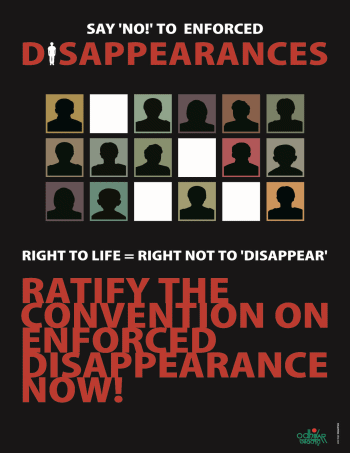Article by Nurul Kabir, Acting Editor of New Age, Dhaka, who comments upon the Bangladesh Telecommunication (amendment) Act, 2006. The author concludes: “Under such undemocratic legal and political an environment the country’s media discharges its democratic responsibility, as much as possible, to keep the people informed. Now that a legal tool is there for the government […]
Bangladesh Telecommunication Ordinance 2005 : national security or infringement on civil rights?
Article by Arafat Amin, Researcher, Odhikar. Tapping a telephone does not only infringe the privacy of the person who owns the telephone, the interception subject – it also affects anyone who calls or is called by that person. If communications relating to medical, religious, journalistic or legally privileged material are likely to be involved, the […]
International Criminal Court : shield for victims and witnesses
In the struggle towards International Justice, participation of the victims in the criminal proceedings is a very innovative approach and it breaks the age-old tradition of judicial process. It makes justice more accessible and at the same time victims have a control over the whole process and, undoubtedly, participation of the victims strengthens the cases. ICC […]
Rome Statute and summary of ICC mechanism
The international criminal court was conceived as a respond to the culture of impunity enjoyed by the powerful perpetrators of the offences of gravestnature. It was established through the adoption of the Rome Statute of the International Criminal Court by 120 states on 17 July 1998.The International Criminal Court (ICC) is the first ever permanent, […]
Campaign for the International Criminal Court in Bangladesh: articles
Odhikar actively pursue writing articles on the Rome Statute and the Court with prominent legal and political commentators. In this respect, it identifies individuals, supply them with materials and information and, if necessary, answer all questions. It has attempted to publish at least one article a month in national newspapers. Several fact and information sheets […]
National interest analysis : questions, concerns and dilemmas to ratify the Rome Statute of the International Criminal Court by Bangladesh
The Bangladesh government and members of civil societies took active interest in the process that led to the signing of a historic international treaty, the Statue of the International Criminal Court in Rome in July 1998. The Court will have jurisdiction over individuals who commit most serious crimes of universal concern; namely, genocide, crimes against humanity, […]
Themes
Members/Partners
- Anti-Death Penalty Asia Network (ADPAN)
- Asian Federation Against Involuntary Disappearances (AFAD)
- Asian Forum for Human Rights and Development (FORUM-ASIA)
- Asian Network for Free Elections (ANFREL)
- CIVICUS
- HURIDOCS
- International Commission of Jurists (ICJ)
- International Federation for Human Rights (FIDH)
- World Organization against Torture (OMCT)




